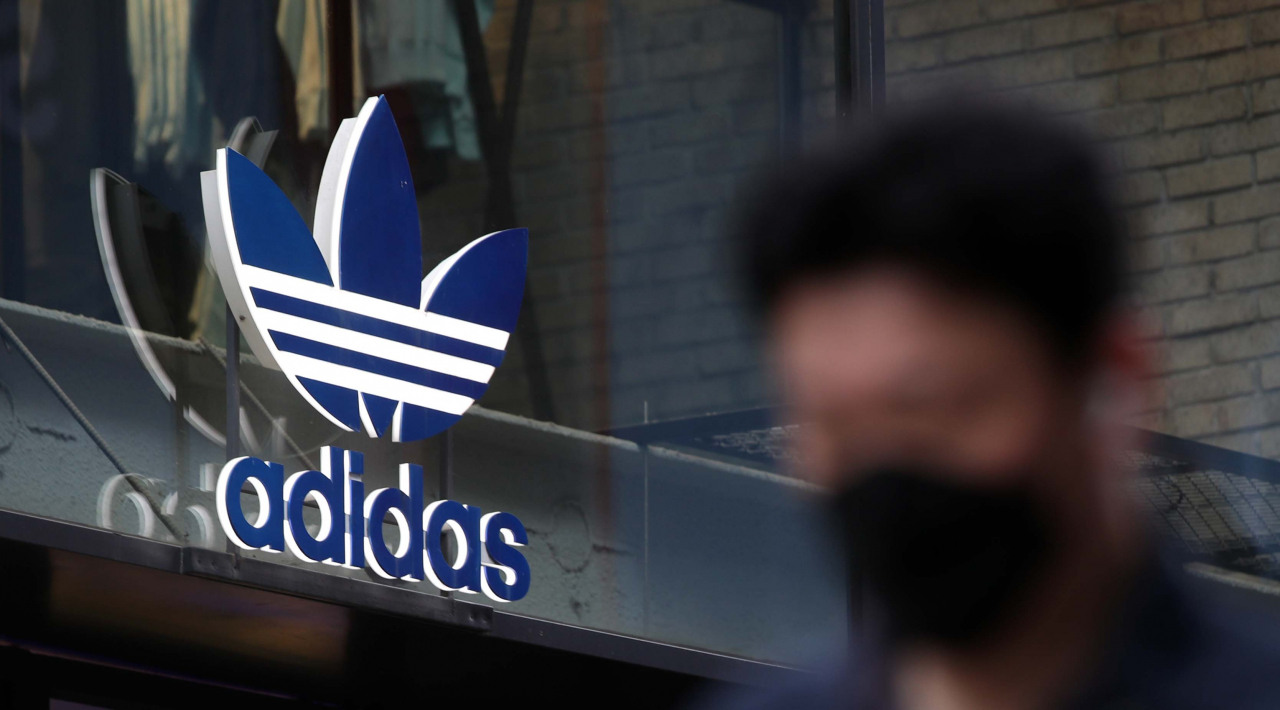[From the scene] Why Adidas shop owners in Korea are protesting
Years of alleged abuse of power add to franchisees’ debt, leading to legal action
By Lee Yoon-seoPublished : Sept. 12, 2023 - 15:30

The South Korean unit of the global sports brand Adidas has been hit with backlash from its franchisees who claim that they have been subjected to years of repeated abuse of power from their parent corporation -- only to have their business contracts terminated via the head office’s unilateral announcement.
The Adidas Franchisee Association -- comprising 76 Adidas Korea franchisees out of some 100 across the country -- said Tuesday it reported Adidas Korea to the Federal Trade Commission for the second time over alleged unfair business practices.
"Adidas Korea made a unilateral announcement to terminate its contracts with 80 percent of its franchisees. After having experienced years of unfair treatment which only resulted in the personal deficit of franchisees, we are asking for just actions to be taken," Kim Jung-joong, the association head and owner of an Adidas franchise outlet in Jochiwon, Sejong, said at a press conference at the National Assembly.
In January last year, Adidas Korea announced plans to continue contracts with only 19 of some 100 franchises, saying that it wished to fortify its online business and chain store business. Adidas Korea also sent a formal notice to the franchisees who were not selected that they would be supplied with products from the head office only until 2024.
The announcement was met with severe retaliation from Adidas Korea franchise owners across the nation, who claimed that they had long been forced to make multiple investments in their stores in accordance with corporate policies -- such as expanding the number of franchise outlets and remodeling the stores' interior.
"Franchisees took out loans with their houses and real estate as collateral, to follow Adidas Korea's demands," said Kim.
"If the contracts are terminated, most of the franchisees would go bankrupt," he said.
Kim Ju-ho, an official from nongovernmental organization People's Solidarity for Participatory Democracy, claimed that the majority of Adidas Korea franchisees had come under pressure from Adidas Korea to make additional purchases beyond their means.
Kim alleged that in one case, when one franchise outlet made an order worth 200 million won ($151,000), the head office responded by forcing franchisees to make 300 million won worth of purchases. If the franchisees could not sell the extra 100 million won worth of products, the leftover products were added to the franchisees' deficits.
In May, 62 Adidas Korea franchisees reported to the FTC over Adidas Korea's unfair business practices.
However, the report was dismissed by the FTC in July on the grounds that the business structure between Adidas Korea and its franchisees did not meet the outline of a franchise business stipulated by the Korean Franchise Business Act.
"We asked Adidas Korea to report the case again for the violation of the Agency Transactions Act, as the business structure between Adidas Korea and its franchisees resembled that of suppliers and agencies," an FTC official told The Korea Herald.
Franchises refer to outlets of a corporation that receive support and education regarding business tactics from its head office, along with management control, to a certain extent. Meanwhile, agencies are categorized as retailers that solely conduct consignment sales of the parent company's goods.
Regarding its appeal to the FTC, the Adidas Franchisee Association said it would make necessary amendments to its initial report so it would qualify as a case under violation of the Korean Franchise Business Act.
"I demand the FTC to investigate whether Adidas Korea is indeed exercising unfair business practices on its franchisees and take clear measures, in consideration of the seriousness and urgency of the issue," said Rep. Kim Sung-joo, a lawmaker from the Democratic Party of Korea, during the press conference.
Regarding the massive contract cancellations with 76 franchisees, an Adidas Korea official said the decision was made as part of the company’s efforts to streamline its business structure in line with changes in market trends.
He added that the company also offered a three-year grace period, which he said was considered enough for them to come up with countermeasures.
The official also denied the allegation that some store owners were forced to make additional purchases unilaterally, saying “The purchases were made via mutual agreements. If the franchisees could provide objective proof of their losses incurred by the purchases, Adidas Korea is ready to respond sincerely.”





![[Graphic News] Number of coffee franchises in S. Korea rises 13%](http://res.heraldm.com/phpwas/restmb_idxmake.php?idx=644&simg=/content/image/2024/05/02/20240502050817_0.gif&u=)



![[Robert J. Fouser] AI changes rationale for learning languages](http://res.heraldm.com/phpwas/restmb_idxmake.php?idx=644&simg=/content/image/2024/05/02/20240502050811_0.jpg&u=)








![[Eye Interview] 'If you live to 100, you might as well be happy,' says 88-year-old bestselling essayist](http://res.heraldm.com/phpwas/restmb_idxmake.php?idx=652&simg=/content/image/2024/05/03/20240503050674_0.jpg&u=)
